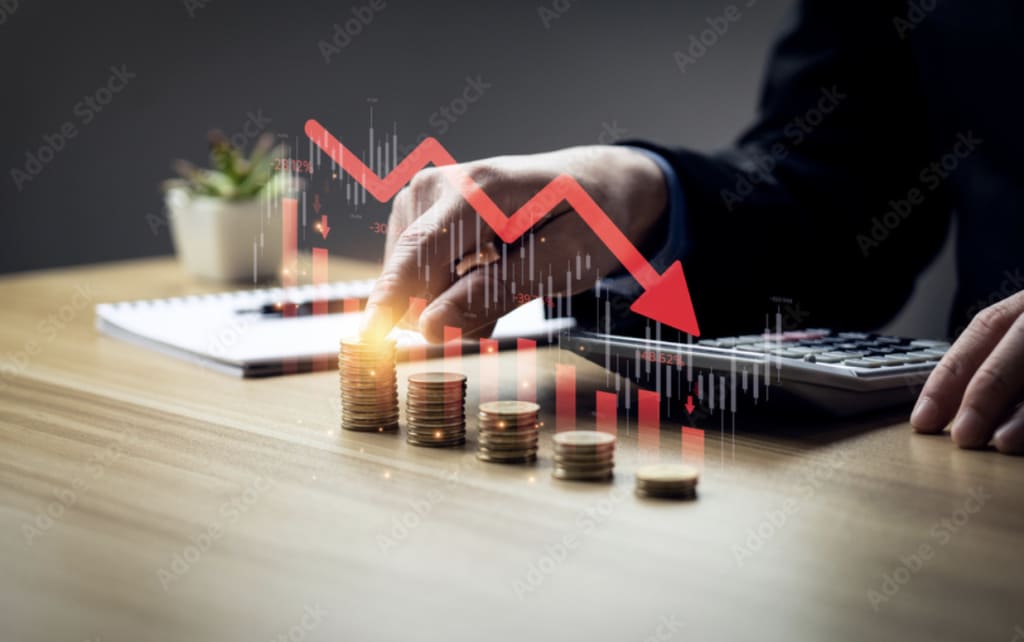
The global economy has been hit hard by economic crises throughout history, and today we face yet another crisis of great magnitude. The current economic crisis has been triggered by the outbreak of the COVID-19 pandemic, which has resulted in widespread business closures, job losses, and a significant contraction in economic activity. The crisis has highlighted the vulnerability of the global economic system to external threats and has raised many questions about the factors that contribute to economic crises and ways to mitigate their impacts.
An economic crisis refers to a significant decline in the overall economic performance of a country or region. An economic crisis can manifest in various forms such as a recession, depression, or a financial crisis. Economic crises often result in high unemployment rates, decreased purchasing power, and contraction in economic output. During economic crises, businesses are forced to cut down on costs, lay off workers, and implement austerity measures to remain afloat. Such measures affect people's lives, particularly those who rely on the formal economy for their livelihoods.
The current economic crisis has affected economies around the world. The lockdown measures implemented by various countries to prevent the spread of COVID-19 have resulted in widespread business closures, particularly in the travel, tourism, and hospitality sectors. Many small and medium-sized enterprises (SMEs) have been particularly hard hit, and many have been forced to shut down permanently. The crisis has also had a significant impact on the global supply chains, with many manufacturers struggling to source raw materials and sell their products. As a result, there has been a significant contraction in trade, with many countries experiencing declines in export revenues.
The impacts of the current economic crisis have been severe, and they have been felt by people from all walks of life. Job losses have been widespread, particularly in sectors that rely on physical interaction between people. The widespread income loss has led to a decline in consumer demand, which, in turn, has affected businesses that rely on consumer spending. The overall economic output of countries has also been affected, with many countries experiencing negative economic growth rates. The crisis has also amplified the debt burden of many countries, particularly developing countries that have taken on loans to manage the effects of the crisis.
Economic crises are a significant challenge to society, and there are numerous factors that contribute to their occurrence. One of the main factors contributing to economic crises is the instability of the global financial system. Financial instability can result in financial crises, which can lead to economic downturns. Financial instability can be caused by various factors such as poor regulation of financial markets, excessive levels of debt, and speculative bubbles.
Another factor that contributes to economic crises is the lack of diversification in the economy. In most cases, economic crises are triggered by a shock to a particular sector of the economy. For instance, the current economic crisis was triggered by the outbreak of COVID-19, which affected sectors such as travel, tourism, and hospitality. Countries that rely heavily on such sectors are particularly vulnerable to economic shocks.
High levels of public and private debt also contribute to economic crises. When countries and individuals take on too much debt, they become vulnerable to shocks such as changes in interest rates, exchange rates, or a sudden decline in economic activity. Countries that are heavily indebted often resort to austerity measures to reduce their debt burden, and such measures often result in social unrest.
Finally, political instability can also contribute to economic crises. Political instability often results in policy uncertainty, which can affect business investment and deter foreign investment. Political instability can lead to social unrest, which can further affect economic activity. Countries that are politically unstable are often seen as high-risk by investors, and this can lead to reduced investment flows.
Mitigating the impacts of economic crises requires a concerted effort from all stakeholders. Governments must provide the necessary support to individuals and businesses that have been affected by the crisis. Such support may include financial assistance, tax relief, and other incentives. Governments can also implement measures to stimulate economic activity, such as increased spending on infrastructure projects and social welfare programs.
Central banks can also play a crucial role in mitigating the impacts of economic crises. Central banks can lower interest rates to stimulate lending and investment, inject liquidity into financial markets, and use monetary policy tools to stabilize the economy. However, these measures must be used in moderation, and central banks must be mindful of the possible long-term effects of such policies.
Businesses must also play their part in mitigating the impacts of economic crises. Businesses must diversify their operations to reduce vulnerability to shocks in particular sectors. Businesses must also manage risk effectively and adopt flexible business models that can adapt to changes in the economy.
In conclusion, the current economic crisis has highlighted the vulnerability of the global economic system to external shocks. The crisis has affected economies around the world, and its impacts have been severe. Economic crises are a significant challenge to society, and they require a concerted effort from all stakeholders to mitigate their impacts effectively. Governments, central banks, and businesses must work together to implement measures that can stabilize the economy and support those who have been affected by the crisis. As we move forward, we must learn from the current crisis and implement measures that can make the global economic system more resilient to future shocks.





Comments
There are no comments for this story
Be the first to respond and start the conversation.